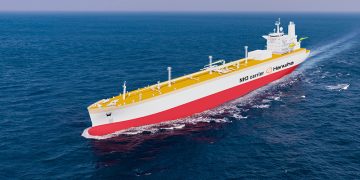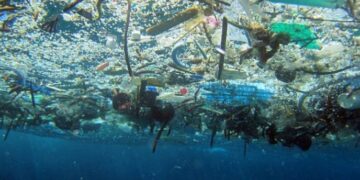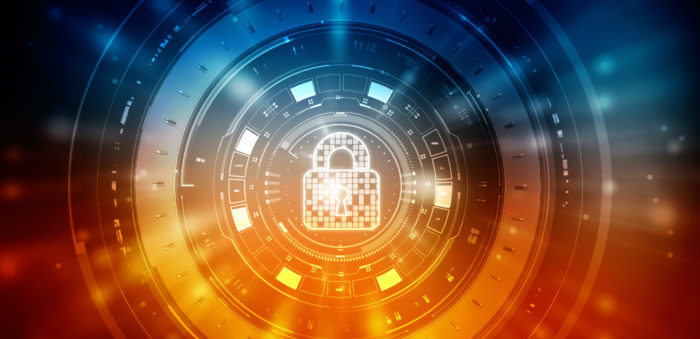What if existing manufacturing and large technological innovations come together to give solutions to our problems? Technology today is increasing rapidly; the upgrade of current technologies or the development of new applications open a new world of opportunities. However, we are not talking about technologies that will appear in the distant future but about technologies that do not exist at present and are expected to come within the next five years. These will impact many industries and shipping in not an exception. Considering that many smart shipping challenges are underway causing a revolution in the way ships are navigating, it is important to keep an eye on what future holds.
In that respect, IBM presents 5 technologies they will prevail in the next 5 years, and reshape all industries in general. This year’s predictions present a special interest for the maritime industry. Namely, new technologies like blockchain and AI will dominate in the future, even though now they are at their initial stages. At first glance, computing is expected to reach levels that we have not seen until now, and will bring ground-breaking changes in society. Here are IBM’s top 5 predictions that will change the future:
[smlsubform prepend=”GET THE SAFETY4SEA IN YOUR INBOX!” showname=false emailtxt=”” emailholder=”Enter your email address” showsubmit=true submittxt=”Submit” jsthanks=false thankyou=”Thank you for subscribing to our mailing list”]
1. Crypto-anchors and blockchain will raise obstacles to counterfeiters
Not long from now, within the next five years, cryptographic anchors, which are tiny computers smaller than a grain of salt, will be inside everyday objects. Cryptographic anchors along with blockchain’s already proven importance, will ensure products’ or documents’ authenticity. This technology will revolutionize safety, as it will protect food safety, authenticity of manufactured components, genetically modified products and identification of counterfeit objects.
Of course, maritime industry will be largely benefited by such a technology. Only last year, one of the world’s largest shipping companies, Maersk experienced a cyber-attack which largely impacted its operations. The need for cyber-security, is thus vital.
The positive is that blockchain could be more beneficial to cybersecurity than it will be harmful. Namely, Maersk and IBM, LR and BLOC, HMM, and many consortiums are investing in blockchain. These technologies focus on detecting attacks in the delivery, exploitation, installation and control of a cyber-attack. Also, with blockchain the digital operations of a ship can be more efficient and safe in general, increasing the vessel’s operational efficiency.
Beatrice Russ, Partner, Ince&Co and Joanne Waters, Senior Registered Foreign Lawyer, Ince&Co, notes:
In 2017, the maritime industry was awash with predictions of the potential for blockchain technology to enhance communication, allow transparency across the supply chain and thereby streamline traditionally paper-based trade processes. Ultimately, blockchain would be expected to combat the current fragmentation across the industry by making processes more efficient.
2. Lattice cryptography will improve cyber-security
Quantum computers is the new trend as far as encryption methods are concerned. These computers will someday be able to break all current encryption protocols. A post-quantum encryption method is already developed, and is submitted to the National Institute of Standards and Technology (NIST), called lattice cryptography. No computer will be able crack it, not even future quantum computers. Lattice cryptography aims to ensure that we can work on a file, or encrypt it, without exposing sensitive data.
3. AI robot microscopes may save the oceans
In five years, small, autonomous AI microscopes, located in the cloud will be used around the world, to monitor in real time the health of water. IBM scientists are developing an approach that uses plankton, in which the AI microscopes will be placed to check plankton movement in 3D, in their natural environment, and use this information to predict their behavior and health. This can contribute in situations such as oil spills, which are almost impossible to be completely cleaned.
In the maritime sector, AI is already enjoying considerable investment and interest. One of the key areas where it is receiving particular attention is automation. Considering a ship, oil rig or any other ocean-going platform, AI can support both manned and unmanned options.
AI will use information from machine learning algorithms in order to make a decision and then take actions based on this algorithm, enabling autonomous operations. In fact, AI has already been used in some defense research work and was an effective way to recognize objects at sea, and then use the COLREGs to plan a safe track.
4. AI bias will explode
In five years as well, we will able to mitigate problems caused by biased AI. Researchers want to create an AI system that we can trust. For this reason, it is very important to train these systems. IBM managed to develop a method to reduce the bias that an AI may present, so that any AI algorithm can learn later from that dataset.
In shipping, smart ships will “learn” from their surroundings. Namely, they will be collecting data, which they will later use in order to plan a safe course and achieve a highly efficient operation.
However, the first step will be taken, by using remotely operated short-sea vessels. These vessels will be operating in the next few years, closely followed by unmanned ocean-going vessels. This will have significant implications in the maritime sector and the people who will be doing the work in the future.
But the collaboration between people and autonomous systems will not run smoothly, at least in the beginning. According to a LR report on future technologies “We have an innate tendency to mistrust things we do not understand or cannot control. This response can markedly influence our willingness to adopt, trust and rely on automation.”
This will affect the use of autonomous technology, as well as the user’s confidence in its capabilities, affecting the trust to the machine. Another reason why people will have difficulties accepting autonomous vessels will be the fact that, these vessels increase the risk of replacing humans, thus potentially making accidents at sea more severe and even end up being more expensive to run.
5. Quantum computing will dominate
Professionals and developers will use Quantum computing to solve problems that now do not have solution. Quantum will be used in universities, and even in high schools. In the future, quantum computers will be addressing problems with increased complexity, eventually surpassing what humans can do with conventional machines.































































